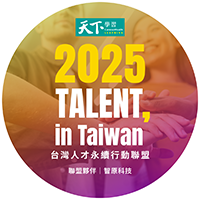| Stakeholder |
Significance to Faraday |
Communication Channels/Frequency |
Concerned Sustainability Issues |
2024 Communication Achievement |
| Customer |
Best strategic partner, dedicated to customeroriented product and service development to support customer success. |
- Phone/email (daily)
- Quality meeting (monthly/quarterly)
- Customer satisfaction survey (quarterly)
- Customer meeting (irregularly)
- Customer questionnaire and audit (irregularly)
- Customer audit (irregularly)
|
- Customer relationship management
- Innovation management
- Product quality and safety
- Sustainable supply chain management
- Information security
|
- Customer satisfaction reached 88.7% (out of 100%), and improvement measures as well as preventive actions for customer-identified issues have been implemented.
- Responded to 26 customer ESG-related questionnaires or guidelines.
- Participated in a total of five customer audits.
- Participated in sustainability assessments, including EcoVadis and CDP, in response to customer requests.
|
| Employee |
The most important resource, creating the greatest value for the company. |
- Employee forum (quarterly)
- Labor management conference (quarterly)
- Training committee (quarterly)
- Occupational safety and health committee (quarterly)
- Welfare committee (half-year)
- Performance review (annually)
- Employee satisfaction survey (annually)
- Human rights due diligence (every three years)
- Email comment box/bulletin board (irregularly)
|
- Talent attraction and talent retention
- Diversity/Equity/Inclusion
- Development
- Occupational health and safety
|
- Hold the following meetings regularly, totaling 18 sessions:
- Employee forum (quarterly)
- Labor management conference (quarterly)
- Training committee (quarterly)
- Occupational safety and health committee (quarterly)
- Welfare committee (half-year)
- Annual performance review: Implementation rate exceeds 80%
- Newcomer interviews: Implementation rate is 100%
- Employee satisfaction survey: 92%
- Human Rights Due Diligence: Implementation rate of 100%; human rights violations reported: 0 case
- Global announcements/shares: Over 200 posts
|
| Investor/Shareholder |
Provides operating capital and focuses on financial and governance performance. |
- Investor conference (quarterly)
- Shareholder general meeting (annually)
- Quarterly financial reports and annual report (quarterly/annually)
- MOPS (Market Observation Post System) (irregularly)
- Meetings (irregularly)
- Phone/email (irregularly)
|
- Corporate governance*
- Financial performance*
- Risk management*
- Innovation management
- Product quality and safety
|
- Held quarterly online investor conference to thoroughly explain the current quarter's operational performance and outlook to investors, totaling 4 sessions
per year.
- Participated in a total of 13 domestic and international broker forums to effectively communicate the company's operational status and strategies to
institutional investors.
- Held online or in-person meetings with domestic and international investment institutions several times a week. Through nearly a hundred meetings,
investors are informed about the company's value and competitiveness.
- Exceeding legal requirements, the shareholders' meeting is held by the end of May to improve the situation of concentrated scheduling for shareholders'
meetings.
- Both the interim financial reports and annual financial reports are published in Chinese and English versions, exceeding legal requirements by being
released early, ensuring transparency of information.
- Simultaneously provided 42 material information in both Chinese and English, facilitating information access for foreign investment institutions.
- Collaborate with stakeholders to respond to sustainability assessments from international rating agencies such as FTSE, S&P CSA, and MSCI.
|
| Supplier/Contractor |
Provide operational resources and services to co-create a sustainable supply chain. |
- Phone/email (daily)
- Supplier audit (quarterly/yearly)
- Quality monthly report (monthly)
- Customer Complaint Channels (irregular)
- Supplier Sustainability Communication (irregular)
|
- Risk management*
- Integrity in operation*
- Sustainable Supply Chain Management
|
- Conducted a total of 15 RBA audits for suppliers, with 100% of suppliers meeting RBA requirements.
- 100% of production suppliers provide a quality monthly report every month.
- Complete the evaluation of production suppliers quarterly with a 100% completion rate.
- Suppliers complete corrective and preventive actions for production abnormalities with a 100% completion rate.
- Suppliers have completed signing the "No Conflict Minerals Declaration" and the "Environmental Substances Non-Use Commitment," with a 100%
completion rate.
- In 2024, conducted human rights due diligence for suppliers. Issues of moderate risk will be identified as key human rights issues for Faraday. Will continue
to optimize supplier audit management and regularly track the execution results.
|
| Government/Associations |
Adhere to government regulations and leverage government resources. |
- Corporate governance evaluations and index assessment (yearly)
- MOPS (Market Observation Post System) (irregularly)
- Financial report (quarterly)
- Shareholder Meeting Materials (yearly)
- Sustainability report (yearly)
- Government Correspondence and Activities (irregularly)
|
- Corporate governance*
- Financial performance*
- Risk management
- Integrity in operation*
- Climate and energy
|
- Participated in corporate governance evaluations and achieved a ranking among the top 5% of companies.
- In response to national sustainable development goals and received the "National Sustainable Development Award" for the year 2024.
- In response to the Occupational Safety and Health Administration's promotion of occupational health and safety, received recognition as an outstanding
enterprise in the "Active Evaluation of Corporate Sustainability Report Disclosure of Occupational Health and Safety Indicators”
- In response to the health promotion activities of Health Promotion Administration, Ministry of Health and Welfare, received the Excellence Award in the
"Workplace Posture Management and Competition."
- In response to the national 12 key strategies for net-zero emissions, initiating green electricity transfer, promoting energy-saving project, and advancing
green finance.
- Completed GHG inventory for parent and subsidiary companies, ahead of the schedule outlined in the FSC's Sustainable Development Roadmap (2027).
- Serve as a committee member and officer of the Taiwan Science Park Industrial Association's Professional Committee, providing professional advice,
consultation, and acting as a bridge for communication with the government.
- Participated in 38 public hearings, seminars, or training sessions organized by the government and industry associations.
|




